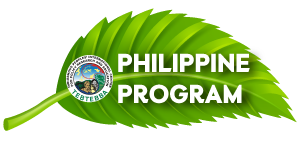Conference of Parties (COP)
The Conference of the Parties (COP) is the governing body of the Convention on Biodiversity. Its primary responsibility is to review and steer the Convention's implementation through the decisions it takes at its periodic meetings.
In 2014, the COP decides to hold its future meetings to include the meetings of the Conference of the Parties serving as the meeting of the Parties to the Cartagena Protocol as well as the meetings of the Parties to the Nagoya Protocol.
COP 15, CP-MOP 10 and NP-MOP 4
Part 1
“There is an overwhelming evidence that show that indigenous peoples and local communities have historically been - and continue to be - the best stewards of nature that reaffirms the need to recognize, respect the rights, governance systems, and their knoweldge,” says the representative of the International Indigenous Forum on Biodiversity (IIFB) during the first part of the fifteenth meeting of the Conference of the Parties (COP 15) to the Convention on Biological Diversity and the concurrent meetings of the Parties to the Cartagena and Nagoya Protocols held virtually from 11 to 15 October 2021.
Part 1
Part 1
COP 14, CP COP-MOP 9 and NP COP-MOP 3
Side Event
Title: Facilitating knowledge generation through community-based monitoring and information systems to advance attainment of Aichi Biodiversity Targets and Agenda 2030
Indigenous peoples and local communities (IPLCs) have long been monitoring the changes within their territories through different means, developing and adopting along the way tools and approaches to better systematize knowledge generation and decision-making. As part of their engagement in the international processes, indigenous peoples have identified indicators relevant to them, some of which have been adopted by the UN CBD. These indicators were then integrated into the process of their community-based monitoring and information systems (CBMIS) in formulating community strategic plans and in their monitoring and assessment activities.
IIFB Statements
The International Indigenous Forum on Biodiversity (IIFB) proposed a roadmap for future work on traditional knowledge and customary sustainable use during the fourteenth meeting of the Conference of the Parties (COP 14) to the Convention on Biological Diversity, the ninth meeting of the Conference of the Parties serving as the Meeting of the Parties to the Cartagena Protocol on Biosafety (CP COP-MOP 9) and the third meeting of the Conference of the Parties serving as the Meeting of the Parties to the Nagoya Protocol on Access to Genetic Resources and the Fair and Equitable Sharing of Benefits Arising from their Utilization (NP COP-MOP 3) held from 17 to 29 November 2018 in Sharm-El-Sheikh, Egypt.
COP 13, CP COP-MOP 8 and NP COP-MOP 2
Side Events
Title: Traditional knowledge on biodiversity and ecosystems health to advance implementation of the Aichi Biodiversity Targets and Sustainable Development Goals
*upload Tebtebba side event flyer (Side Event No. 2160 Flyer.pdf)
The UN General Assembly adopted the outcome document entitled “Transforming our world: the 2030 Agenda for Sustainable Development.” The Sustainable Development Goals or SDGs will be the framework for development of states for the next 15 years. But it is an indisputable fact that the achievement of the 17 goals has to be underpinned by biodiversity and the health of ecosystems. Hence, the 2030 Development Agenda should all the more highlight the importance of biodiversity and ecosystems services and underscore the importance of the Aichi Biodiversity Targets and associated traditional knowledge.
It is all the more imperative to continue to promote indigenous peoples’ traditional knowledge, systems and practices, and innovations that create synergies or cut across the SDGs and the Aichi Targets.
The side event will present indigenous peoples’ actions based on traditional knowledge to address problems of poverty/underdevelopment and contribute to achievement of the Aichi and SDG targets.
Title: Centres of Distinction on Indigenous and Local Knowledge
Description:
A network of Indigenous and Local Knowledge (ILK) Centres of Distinction was launched this year at IPBES4, composed of organizations implementing programmes of work on traditional knowledge in different global regions and which have a long history of engaging within the United Nations system to deliver policy recommendations, implement projects and provide assessments, such as for biodiversity indicators and community-based monitoring systems. Each Center has its own distinct activities and strengths. This network is a support mechanism for delivering inputs into IPBES by indigenous and local knowledge holders themselves, and can identify other relevant knowledge holders and experts in their regions and areas of expertise. The network is open-ended and operates in a transparent manner to facilitate participation in relevant knowledge and policy processes, including the Convention on Biological Diversity. Learn about works in progress, establish collaborative partnerships and plan future work on Indigenous and Local Knowledge.
IIFB Statements
The International Indigenous Forum on Biodiversity (IIFB) is concerned about the limited progress made towards Aichi Biodiversity Targets 18 and 14 during the thirteenth meeting of the Conference of the Parties (COP 13) to the Convention on Biological Diversity, the eighth meeting of the Conference of the Parties serving as the Meeting of the Parties to the Cartagena Protocol on Biosafety (CP COP-MOP 8) and the second meeting of the Conference of the Parties serving as the Meeting of the Parties to the Nagoya Protocol on Access to Genetic Resources and the Fair and Equitable Sharing of Benefits Arising from their Utilization (NP COP-MOP 2) held from 2 to 17 December 2016 in Cancun, Mexico.
